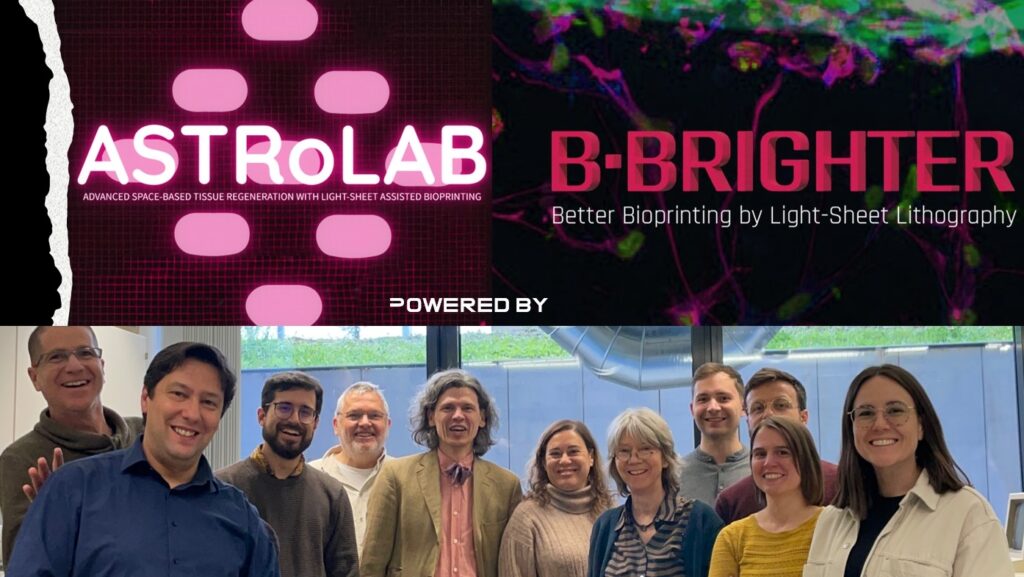What would happen if we could do human tissue bioprinting under 0g? This is the key question of ASTRoLAB: Advanced Space-based Tissue Regeneration with Light-sheet Assisted Bioprinting. This side-project based on B-BRIGHTER technology has been recently submitted to the European Space Agency (ESA).

B-BRIGHTER consortium members recently presented a project in the frame of the ESA Payload Master call, with the aim to send the project’s light-sheet bioprinter to space and perform some experiments to check-out if there outcomes improve while working under 0g.
The main points of the proposal are:
– Bioprinting under 0g substantially improves the quality of the engineered tissues, by allowing a level of homogeneity of the cell-gel mixture that is not achievable in a g-field 20 µm resolution.
– We want to show that manufacturing engineered tissues in 0g offers enormous advantages compared to manufacture on Earth.
– We aim to demonstrate that the top-down bio-printing process offered by the LS-Bioprinter is much more suitable to 0g applications than the conventional extrusion methods.
The ESA Payload Masters program serves the dual role of fostering and discovering groundbreaking in-orbit experiments and cutting-edge technologies for payloads. Simultaneously, it plays a pivotal role in democratizing space exploration, making it accessible to both space and non-space industries. The main objective of the program is to enhance the competitiveness of companies by eradicating the well-known “valley of death” phenomenon and giving access to in-Orbit Demonstration and Validation (IOD/IOV).
The project winners of the call will be offered the opportunity to fly their payloads/microgravity experiments on board of Nyx for the “Mission Possible” mission. Nyx is a modular and reusable orbital vehicle that can be refuelled in orbit and serves the low Earth orbit (LEO) and lunar destinations. It will start by carrying cargo, with the growth potential to fly humans afterwards. Nyx will enable to perform microgravity experiments, in-orbit technology demonstrations, entertainment, and educational missions, but also cargo delivery to larger space infrastructures or lunar surface.
Let’s keep fingers crossed and hope ASTRoLAB will be selected!
